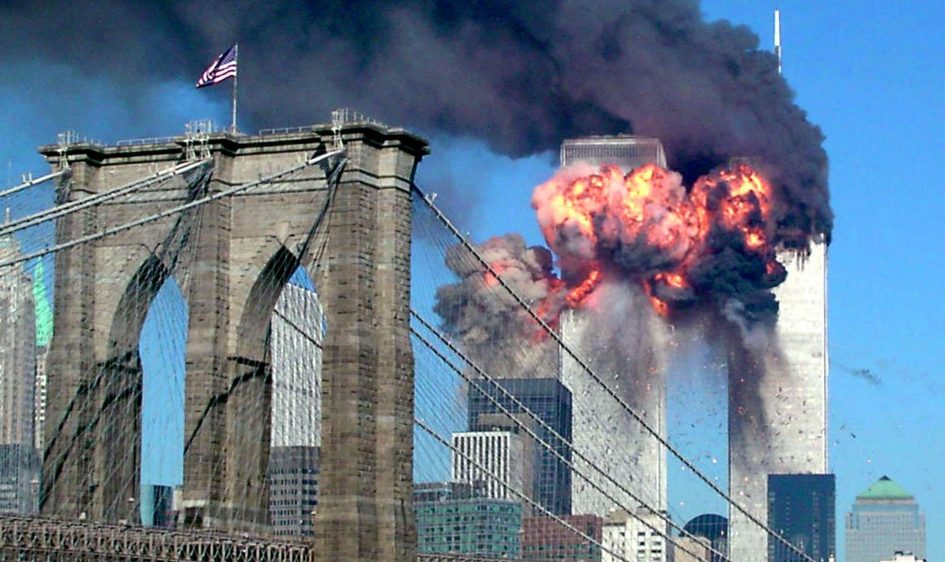Twice in the past few months, terrorists have attacked London, the city where my family and I live. I was minutes away from being caught up in the Westminster attack. And, two weeks ago, terrorists attacked the city I grew up in, Manchester. It’s a lot to process.
At times like this, I often think back to how I felt after the September 11 attacks. As for many people, that event changed my understanding of the world.
I am lucky to have been brought up in a largely violence-free country. For the first time, on 9/11, as I watched the towers fall on television, I felt a sense of existential threat. These people – whoever they were – were aiming at the heart of Western society, at our people, our commerce, our values. What if they succeeded?
OK, so fear. But it was the other feelings that came with it that surprised me the most. I felt anger. I felt the need for revenge. I supported, without reservation, the attack on Afghanistan. It felt exactly right to be sending out the fighter jets even if, looking back, it was a blunt tactic and led to other bad decisions.
I will never forget that emotional response. In me, it persisted for a few months. I think I would have supported most government actions in that time. And, of course, I wasn’t the only one.
I recently read Jonathan Haidt’s brilliant book The Righteous Mind. He describes the same time period. He reports feeling an urgent need, for the first time in his life, to display an American flag in his car. He fought with the urge because he didn’t see himself as a jingoist. Eventually, and I love this, he put an American flag on one side of his windscreen, and on the other side, a United Nations flag.
Haidt makes a serious point. At times of existential fear, our instincts, developed over millions of years, kick in. We become more “groupish”, get behind the flag and are less trusting and capable of living in big, open societies.
You may be thinking this is obvious stuff, but the lesson I draw from my own experiences, and Haidt’s lucid writing, is that no matter how strong we think our liberal values are they are always and everywhere highly vulnerable when we are physically threatened. Because our brains sort of reorganise themselves. We become less trusting and more open to illiberal ideas.
So how to respond to terrorist attacks as a liberal? The easiest reaction is emotional. It feels right to try and empathise, to support the victims, to cheer on the emergency services. Anger and rallying can feel right too – see the reaction to Trump’s petty politicising of yesterday’s London attack.
But that’s not really enough. Because the aftermath of terrorist attacks is fertile time for bad decisions. Some may say that we see things clearer when the threat becomes real. I don’t buy that. We see things through the fog of fear but feel strongly that everything is now clear. That’s a dangerous combination.
After 9/11 I decided I wanted to work in human rights law. I saw then, and see now, human rights laws as a kind of antidote to the natural but dangerous way that humans tend to react to physical threats.
Human rights laws were crafted by people who had lived through the 1930s and 40s, who knew the dangers of charismatic leaders exploiting fear and distrust of the “other”. Their solution was to ensure that in future the most basic rights – to life, to liberty, to free speech – were protected in law and not vulnerable to being overruled by angry majorities.
It is hardest to talk about civil rights after an atrocity. To many people it feels beside the point, or even part of the problem. People are in no mood for “niceties”, for giving terrorists the liberties which they seem hell bent on destroying.
These are the danger times. Human rights, civil liberties – whatever you want to call them – are designed for times like this. They are a moral check list. An insurance policy against our worst natures. Because at times like this, when the world is fearful and trust is in short supply, we need to remember that our judgment in the better times was sound.
None of this points to a particular policy response. I do not claim to know the answer to exactly how many police we need in city centres, how many should carry weapons or what levels of online surveillance is too much. But human rights have a lot to offer in this conversation. Not least because as lucid as we feel after a terrorist attack, the policy responses which emerge from the aftermath may simply be wrong.
One of the state’s primary duties is to protect us from violence. In a sense, civil liberties protect us from the state. That balance is at the heart of democratic society. And it is never more important than on days like today.







